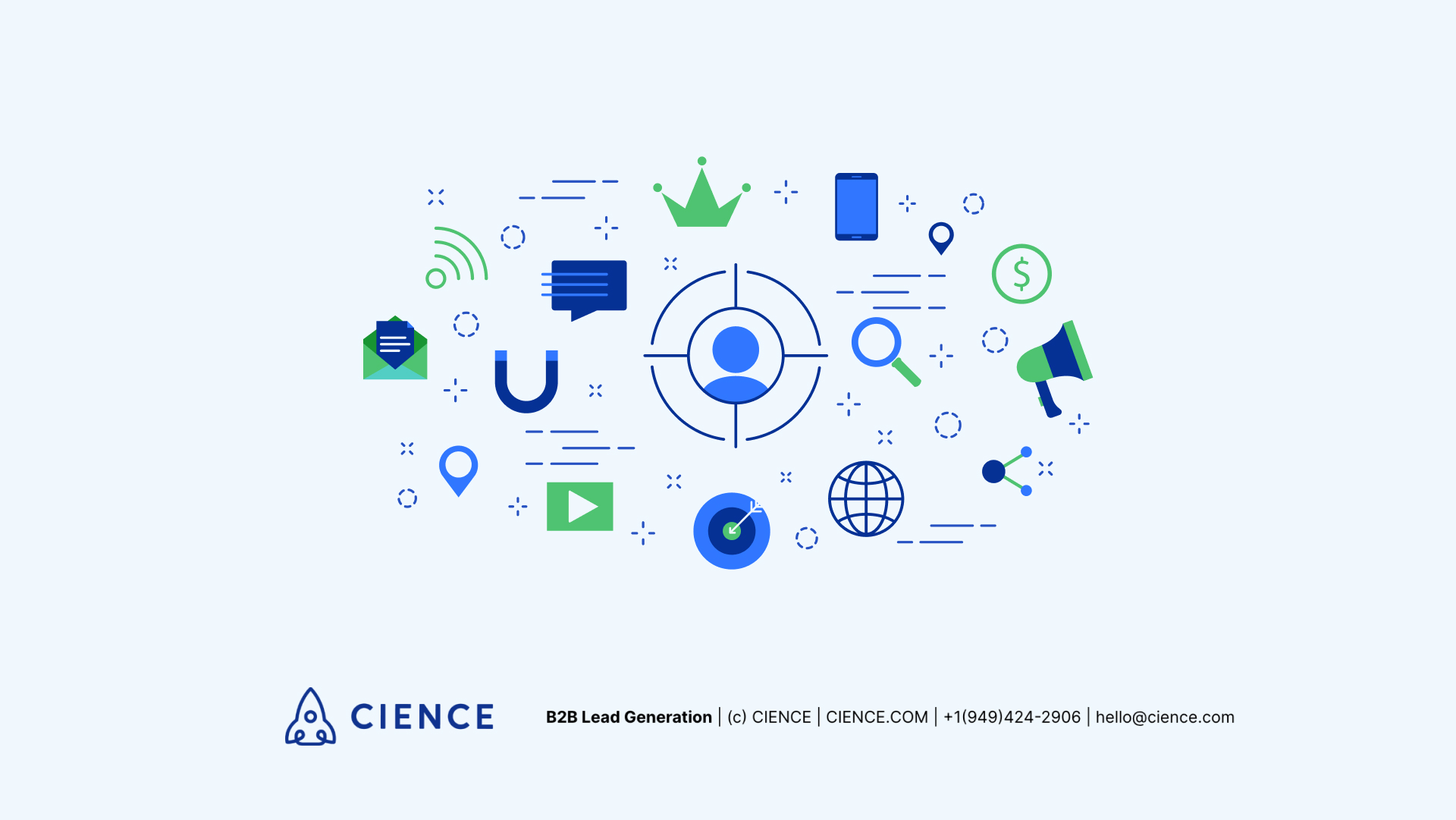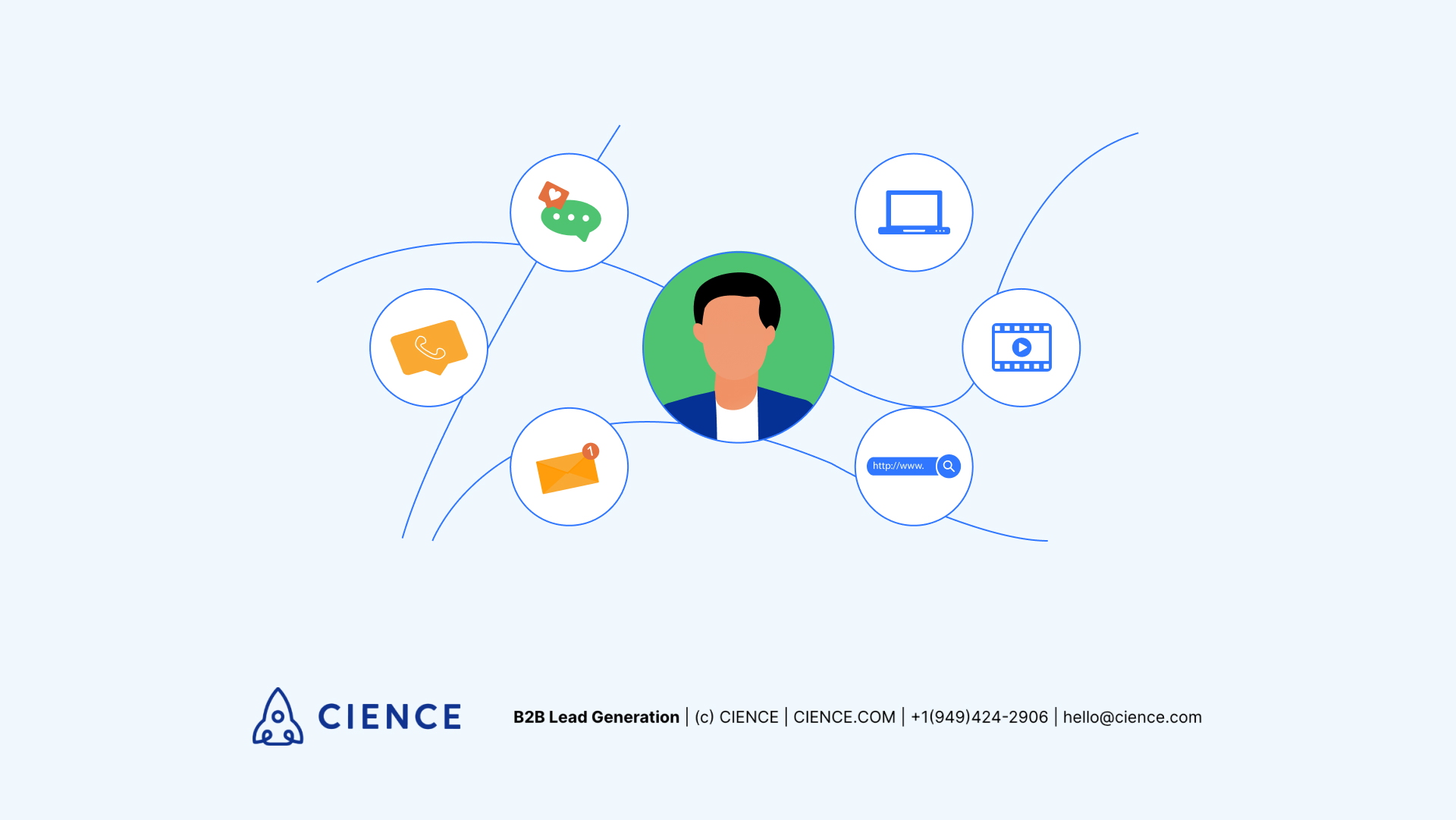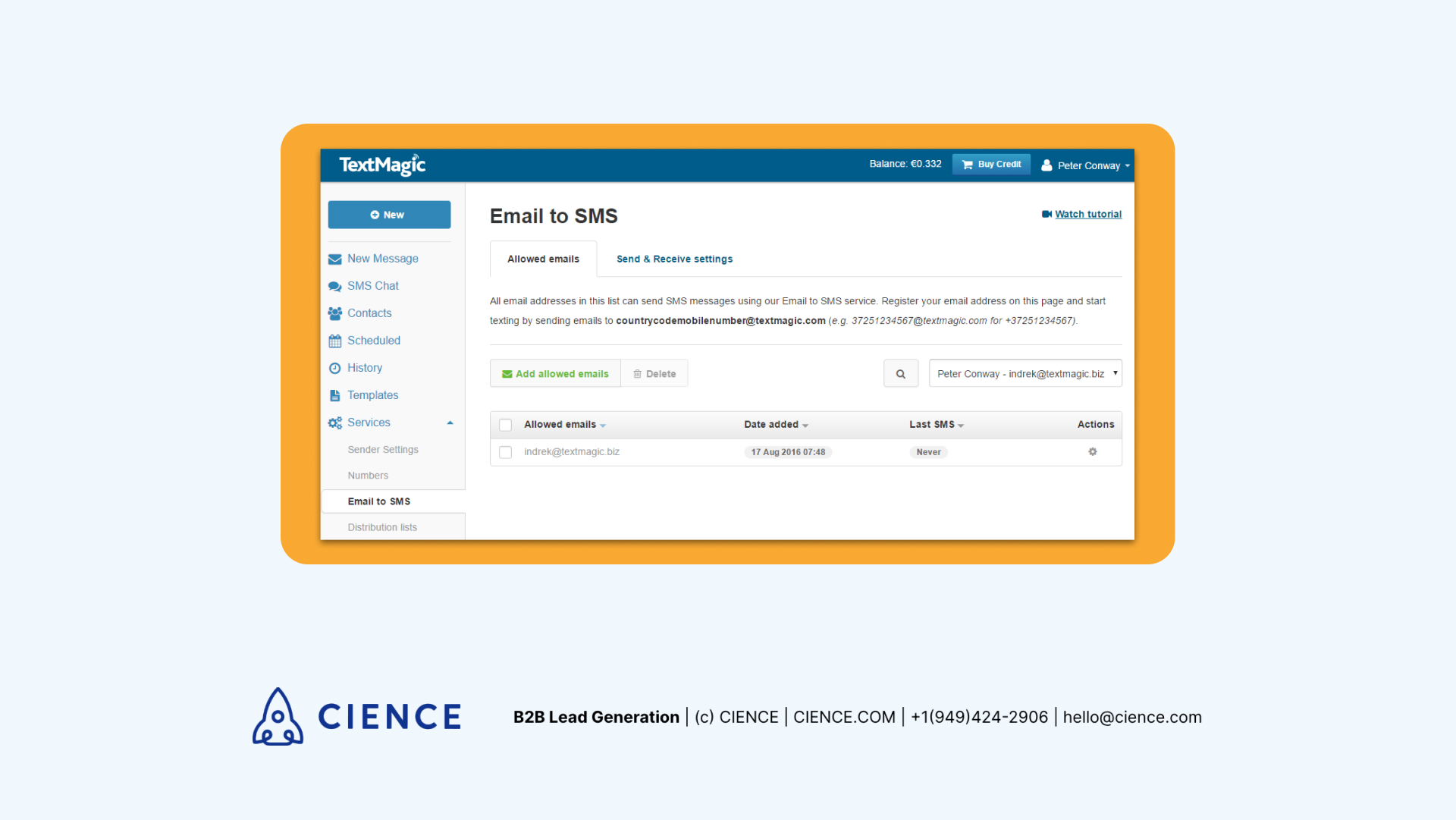5 Ways to Engage B2B Customers With Omnichannel Outreach
Did you know that almost half of the B2B marketers worldwide have completely changed their digital engagement strategy in 2020? This is one of the impressive findings of a 2021 Salesforce Research survey published in the 7th edition of the State of Marketing report.
The survey covered 8,200 marketers from thirty-four countries and revealed that 90% of the marketing experts interviewed have rethought and adjusted their approach to meet the changing customer expectations and behaviors since the beginning of the pandemic.
Digitalization of the world, which influences practically every aspect of our activities, is not a newcomer. The events over the last years, however, have sped up the processes of digital transformation and reshaped the B2B landscape.
To respond to the modern market trends and the increasing B2B customer expectations, businesses have started implementing innovative, client-centered strategies focused on ensuring integrated and seamless customer experience, such as omnichannel marketing.
How can you benefit from the huge variety of marketing communication channels to increase customer engagement and stay competitive? Let’s dive into the common challenges of B2B customer engagement and explore how you can use omnichannel outreach to address them successfully.
Challenges for Achieving B2B Customer Engagement
In today’s tech-enhanced world, the B2B sales environments are becoming more social and more digital. In fact, 61% of all B2B sales are online, and 58% of B2B customers use social media as a research channel. They are looking for a simplified buying process and enhanced customer experience. Increasing B2B customer engagement involves the following main challenges that you’re likely to face:
Excessive competition
Modern B2B companies have started leveraging the potential to utilize an increasing number of marketing channels and build a robust online presence. This directly translates into stronger competition. According to B2B sales statistics, contacting and engaging prospects is harder than before for 54% of agents.
Transparency
Most B2B companies work in silos. They follow long-established information policies, which is important for building trustworthiness. Implementing an omnichannel approach and ensuring transparency requires a new way of thinking and can be difficult for B2B organizations.
Elevated customer expectations
The B2C market today provides seamless customer shopping experiences by allowing prospects to choose the time and the channel for engaging with brands. These trends of enhanced buyer’s control over the purchasing processes are transferred to the B2B market as well. B2B buyers now demand omnichannel engagement and expect to receive the same flexibility, convenience, and personalization.

The Omnipotent Omnichannel
The ultimate goal of omnichannel outreach isis to address all B2B customer engagement challenges and provide the improved experience buyers expect. But what exactly is it and what are the advantages?
What is omnichannel outreach?
Omnichannel marketing creates a brand’s presence and streamlined customer experience across all online and offline channels. Therefore, omnichannel outreach interconnects social media, email outreach, and phone on a single, intuitive platform to provide a holistic B2B customer experience. It’s a powerful lead generation strategy fostering a robust relationship with your customers and designed to engage them on their preferred channels.
Advantages of omnichannel outreach
Omnichannel outreach is a win-win opportunity. It benefits both B2B businesses and customers. It ensures a consistent customer experience across all channels through interconnection and ensuring transparency at all touchpoints along the customer journey. Implementing an omnichannel marketing approach enables companies to get a competitive edge and improve customer engagement and retention.
B2B companies can take advantage of the many benefits of omnichannel outreach that allow them to:
- Integrated marketing communication mediums. This allows you to connect with clients on the channels they prefer and improve customer relations.
- Interconnect online and offline experiences. Interconnection ensures natural and frictionless purchasing processes in any channel so that your prospects become customers, repeat customers, and ultimately, brand advocates.
- Create a single unified dashboard. You can streamline your customer journey mapping and follow-up schedule to prove customer data collected through CRM integration. This enables you to provide highly personalized experiences to your customers.
- Facilitate lead scoring. You can evaluate the sales readiness of your prospects, segment them into “cold,” “warm,” and “hot.”
- Automation of repetitive top-of-funnel tasks. Sales teams can concentrate on the more demanding bottom-of-funnel conversion tasks.
5 Ways to Use Omnichannel Outreach to Engage Customers

Demand Gen Report’s 2017 B2B Buyer’s Survey reveals that 78% of B2B buyers admit they spend more time on research. B2B buyers conduct an average of 12 online searches before contacting the sales representatives as every purchase involves more risks and more weight. This places a great emphasis on ensuring the omnichannel brand presence and maximum transparency in terms of products, processes, and communication as an indispensable requirement for establishing customer relationships of trust and loyalty.
So how can you utilize the potential offered by omnichannel marketing to boost your customer engagement? Try these top five methods to reach out to prospects:
1. Use all available channels.
Using a multichannel outreach approach will ensure the convenience and flexibility your buyers expect. Empowering your customers with the possibility to select the communication channel gives you the opportunity to deliver your message and be heard. Along with traditional offline channels like retail stores and events, you need to create brand awareness on all online channels, such as:
- Email. Using email in your outreach has reportedly achieved increased engagement rates since the beginning of the pandemic.
- SMS. This features an exceptional opening rate of 98%.
- Websites. You can leverage extensive, targeted content to foster brand awareness and educate your prospects.
- Social media. Using social channels can boost your reputation and build your customer audience
- Online communication tools. Messaging tools like WhatsApp and Viber can simplify the outreach process.
- Virtual/hybrid events. Virtual connections make it possible to overcome spatial restrictions and are recognized as a ground for generating leads and brand awareness.
- Video. This channel offers great potential to reach large audiences and increase B2B customer engagement. You can use many formats, such as YouTube, live streams, or webinars, to increase your brand exposure.
Utilizing all these channels may be tricky. You can employ specialists or an SDR team to facilitate your digital transformation in case you find it difficult to manage with the resources available in your organization.
2. Implement integrations across your platforms.
Omnichannel outreach is not only about using a multitude of channels; it involves integrating these channels into a common platform, with every channel interacting with the others. This enables your customer to switch across channels and receive a consistent, seamless experience.
To simplify the development and implementation of your omnichannel strategy, you can start with your enterprise resource planning (ERP), which is the center of your business logic and data. Ensuring that the same information is available across all channels enables integrated interactions across the customer journey.
An omnichannel customer service strategy allows customers to receive the same quality support irrespective of the communication channel they’ve selected. It is also recommended to implement conference call services if you are planning to use that strategy for customer retention. They could start a query on one of the channels and switch to another continuing the conversation from where they paused it, without the need to repeat or start all over again.
3. Streamline internal communication to solve problems faster.
Successfully implementing a B2B omnichannel approach and boosting your customer engagement requires restructuring your marketing processes and streamlining your internal communication. Using the right software can help you simplify information exchange and enhance problem-solving efficiency in your organization, which translates into reduced friction across all touchpoints along the buyer journey.

Source: TextMagic
Technology provides a great variety of omnichannel solutions that enable you to improve internal communication, such as email-to-text services. Email to SMS integration allows you to forward urgent service alerts to phones as texts and automate communications with your staff and customers without developer coding. Building a responsive and reliable omnichannel communication system will empower your team to address both internal and customer problems faster, thus enhancing client satisfaction and engagement.
4. Make it personal.
A Folloze survey on B2B sales and marketing indicates that marketing personalization is recognized as essential for improving customer relations by 77% of the participants, and 55% of the respondents link it to higher conversion rates and growth opportunities. However, 42% of the B2B marketers report they still struggle to implement personalized marketing strategies.

Based on client-centeredness, omnichannel outreach offers a great potential for increasing engagement through ensuring a highly personalized customer experience. Channel integration will enable you to collect customer data and gain valuable insights into your prospects’ behavior on a single dashboard. Knowing how they interact with your brand and identifying the touchpoint and their accurate position along the customer journey will enable you to make data-driven decisions and better target your content.
5. Improve customer support and be there for your customers.
It’s common for B2B companies to provide a phone number for customer support. Omnichannel customer service enables you to build a customer support hub concentrating all capabilities and providing a seamless experience across touchpoints. How can you implement these innovative solutions and enhance your client service operations? To gain a competitive edge, you need to:
- Make sure your data from all customer service platforms is well organized and integrated so that your business can solve customer issues fast and effectively.
- Streamline your responses to customer queries on all your channels by reducing response time and using live chat.
- Personalize customer experience through well-targeted and scheduled email outreach.
- Provide convenient and reliable mobile customer support and ensure easy access to your omnichannel customer service platforms through mobile devices.
- Empower your customers with self-service options. Educate them through a comprehensive knowledge database, such as readily accessible guides, FAQs, and case studies incorporated in your website content
- Enable your customers to follow the status of their tickets in real-time.
Engage Your Prospects with Omnichannel Outreach
Omnichannel customer service is a powerful way to ensure your B2B clients receive the convenience, reliability, and peace of mind that modern technologies can deliver. Creating a single location that centralizes all your channels enables you to build brand reputation, engage your prospects, and establish long-term customer relations of trust and loyalty.
In the B2B context, today’s customers expect a streamlined and frictionless journey across all marketing channels and all touchpoints. Staying abreast with the latest tech-savvy B2B marketing approaches is essential for standing out from the clutter and enhancing customer engagement benchmark. Omnichannel outreach can help you ensure your future business growth and outrun your competitors.
